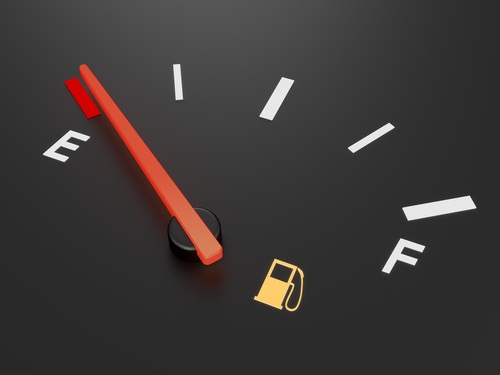
1. Make sure that you are using the correct tires for your vehicle. Each vehicle is designed by the manufacturer to be the most fuel efficient with a certain tire size. Often people will install a slightly different tire size (perhaps due to a sale on another size, or perhaps the store didn't have the original tire size in stock so the sales associate convinced you that it doesn't make a big difference to slightly alter the tire size)... Too small a tire will cause the transmission computer to shift earlier (because it thinks you are traveling faster than you actually are). Too large a tire will force the engine to work harder, especially at lower speeds. Either way fuel efficiency is compromised.
2. Make sure your tires are inflated to the proper air pressure. Having under inflated tires causes the engine to work harder, resulting in decreased fuel efficiency. Studies show that American motorists waste over 1 BILLION gallons of gas per year because of under inflated tires.
3. Use the grade of gas that is actually recommended by the manufacturer. Most people believe the highest octane is better for your car's engine, but this isn't necessarily so. The manufacturer recommended gas is what your vehicle is designed to run most efficiently with... Anything with a higher octane has little to no affect (except on your wallet).
4. Be careful where you buy your gas from... Not all gas stations are equal! Some gas stations mix their fuel with water which, in effect, dilutes it. This not only causes people to buy less actual gas with their money, but this is also bad for your engine.
5. Fill your gas tank during the coolest part of the day. Due to its chemical composition, in lower temperatures gasoline tends to contract. When you buy gas you pay by volume (gallons) not by weight, so when the gasoline takes up less space the end result is you get more gas for your money.
6. Make sure your air filter is clean. Just driving through one or two bad dust storms (haboob) can cause your air filter to be too dirty to function properly. With a partially restricted air filter the engine has to work harder to suck the air through it, and this uses more gas!
7. Make sure your engine is running at its best. Spark plugs, ignition wires, fuel injectors and even timing belts degrade over time... Making sure your engine is regularly tuned with QUALITY parts helps it to perform its job with less gas.
8. Gas evaporates... Make sure your Gas Cap is always tightened properly so that it can seal. If you need to replace your Gas Cap it is best to purchase a new one directly from your vehicle's manufacturer (aftermarket ones are often of lower quality).
9. The oil in your engine will make a difference! When it comes to oil changes, cheaper isn't always better. It is well worth it to use FULL SYNTHETIC engine oil, especially in hotter temperatures such as in Arizona. Synthetic oil not only takes longer to degrade than conventional oil, but it also conserves energy... This results in better gas mileage.
10. Stay within the speed limit! Sorry guys, I know it is tempting to put the pedal to the metal, but holding back a little can mean A LOT of savings for your wallet. While each vehicle reaches its optimal fuel efficiency at a different speed, gas mileage usually decreases rapidly at speeds over 50 mph. One study shows that, on the average, each 5 mph increment that you drive over 50 mph is like an additional $0.24 per gallon for gas. [Oak Ridge National Laboratory. 2013. Predicting Light Duty Vehicle Fuel Economy as a Function of Highway Speed]